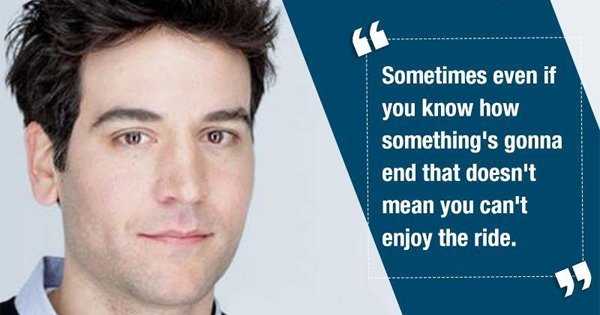
- Select a language for the TTS:
- UK English Female
- UK English Male
- US English Female
- US English Male
- Australian Female
- Australian Male
- Language selected: (auto detect) - EN
Play all audios:
The tail-end of the Covid pandemic has a sting in it. The surge in demand for energy and other supplies has brought with it all kinds of shortages and bottlenecks. The prospect of as many as
three-quarters of the UK’s gas companies going bust forced the Business and Energy Secretary to tell the Commons this week: “There is absolutely no question of the lights going out and
there will be no three-day week or a throwback to the 1970s.” Who had even mentioned the 1970s? This is a little like the Spanish Inquisition reassuring a heretic that he might merely be
garrotted rather than burned at the stake by the secular authorities — but only if he recanted. The speed with which the spike in gas prices has driven smaller providers to the wall has
spooked the markets. Boris Johnson and Rishi Sunak have refused to bail them out, as Gordon Brown and Alistair Darling did the banks in 2008. Nor is the price cap being lifted to save their
bacon. When you scratch Boris, he turns out to still be a Thatcherite, not a Blairite, after all. The same applies to the labour shortages, particularly in the road haulage industry, that
are blamed for empty shelves in the supermarkets. It may be true that an unknown number of Continental lorry drivers have departed these shores or are reluctant to brave the queues at the
ports. Yet there is no lack of lorry drivers in Britain: perhaps half a million people have current HGV licences, but choose not to use them. Blaming Brexit is the easy answer; however,
similar shortages are reported in several EU countries. The market should already have found a new equilibrium by raising wages, but too many supermarkets and other customers rely on
agencies rather than individual drivers. There are anecdotal reports that many drivers prefer to work for themselves, but find themselves squeezed out of their trade by cut-throat
competition from agencies, which then fail to recruit and ultimately to deliver. As in so many other parts of the economy, from carers and nurses to teaching assistants and security,
agencies are a short-term solution but create a long-term problem. Too often, they pay badly and offer poor conditions to self-employed workers. The once vaunted gig economy has struggled to
cope with the upheavals of the pandemic. One legacy of the crisis has been the huge expansion of working from home, or WFH, which has proved to be very popular. Government has indicated
that it will announce later this week that all employees will have the right to request flexible working from the moment they start a new job. At present employees must have stayed in the
post for six months before they can ask to work from home. Employers will still have the right to refuse such requests but will have a duty to consider them “in a reasonable manner”. The new
rights are especially aimed at mothers, the disabled, carers and others who have difficulty balancing their personal and working lives. It seems a sensible measure, provided that it does
not become another reason for employers to be wary of employing women of childbearing age or others for whom the office culture is problematic. The Labour Party insists that all employees
should have an unquestionable right to work from home — which would ensure that even more employers would turn to agencies rather than employ staff directly. Increasing the legal burdens of
employers may enable politicians to pose as the friends of the workers, but in practice they serve the interests of agencies, who are not bound by these laws, and force young people to work
for low wages with no career ladder. The Government is right to reject the Opposition’s demand, but the newly-created Flexible Working Taskforce should keep the impact of post-pandemic
patterns of employment on the economy and society under close scrutiny. One highly disruptive legacy of Covid remains the impact on travel. So it is good news that the United States is
apparently poised to end the ban on visitors from Europe. Fully vaccinated travellers will be allowed to return, though there is still a question mark about whether those who have received
the AstraZeneca jab will count. It is absurd that the US regulatory authorities have still not licensed the only vaccine that has been marketed at cost price and is therefore affordable for
the developing world. Congressional committees should be asking how much influence the US pharmaceutical industry has exercised on a delay that looks suspiciously like protectionism from
this side of the Atlantic. However, British officials say that the AstraZeneca jab will almost certainly be counted for the purposes of travel. The remaining question is: why will the new
rules only come into force in November? Given that the UK and most other European countries have higher vaccination and lower infection rates than the US, the reasons for further
foot-dragging can only be bureaucratic. President Biden would earn a lot of goodwill abroad if he intervened to speed up the lifting of restrictions. The sooner different parts of the world
can reconnect with one another, the sooner the benefits of globalisation will be felt again. Unfortunately, some eco-warriors are determined to prevent any such return to a normality they
regard as not just environmentally unsustainable but morally unconscionable. Insulate Britain, a breakaway faction of Extinction Rebellion (XR), has blocked the M25 and A1M motorways and
threatens to keep disrupting transport until the Government promises to insulate all social housing. Its members (most of whom appear to be middle-aged or elderly) do not care about the
damage their protests do the lives of younger working people. Indeed, they are eager to be imprisoned, especially in the run-up to November’s Cop26 UN climate summit in Glasgow. There is,
though, an ugly side to this virtue signalling: a woman en route to hospital may have died due to traffic jams caused by Insulate Britain. An unwise ruling of the Supreme Court that blocking
the highway for a political purpose may be legal in certain circumstances has led police to be wary of arresting and prosecuting these protesters. That reluctance should cease forthwith. It
may be understandable that Dame Cressida Dick, the Metropolitan Police Commissioner, is afraid of accusations of “heavy-handed” policing, after she so nearly lost her job over the incident
on Clapham Common last March, when a vigil for the murder victim Sarah Everard ended in clashes between police and mourners. But this is a very different situation: the public is entitled to
expect the police to protect its right to go about its business unhampered by an extremist minority. All these legacies of the pandemic are forcing us out of our comfort zones. Perhaps in
normal times, that would not be a bad idea. Yet after such an ordeal, people can be forgiven for wanting a period of peace and quiet. The Government and the authorities will be judged on how
well they manage this transition to whatever the “new normal” turns out to be. Meanwhile, the one principle that we can hang onto is the ancient wisdom of the pre-Socratic philosophers:
“All is flux, nothing is stationary,” Heraclitus taught. He had never been stuck on the M25. A MESSAGE FROM THEARTICLE _We are the only publication that’s committed to covering every angle.
We have an important contribution to make, one that’s needed now more than ever, and we need your help to continue publishing throughout the pandemic. So please, make a donation._









